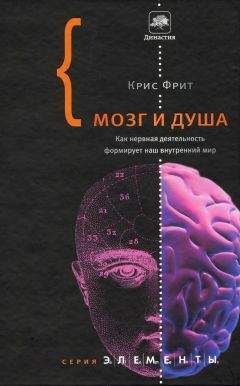Toni Morrison - Song of Solomon
As Macon felt himself softening under the weight of memory and music, the song died down. The air was quiet and yet Macon Dead could not leave. He liked looking at them freely this way. They didn’t move. They simply stopped singing and Reba went on paring her toenails, Hagar threaded and unthreaded her hair, and Pilate swayed like a willow over her stirring.
Chapter 2
Only Magdalene called Lena and First Corinthians were genuinely happy when the big Packard rolled evenly and silently out of the driveway. They alone had a sense of adventure and were flagrant in their enjoyment of the automobile’s plushness. Each had a window to herself and commanded an unobstructed view of the summer day flying past them. And each was both old enough and young enough to actually believe she was a princess riding in a regal chariot driven by a powerful coachman. In the back seat, away from the notice of Macon and Ruth, they slipped off their patent leather pumps, rolled their stockings down over their knees, and watched the men walking down the streets.
These rides that the family took on Sunday afternoons had become rituals and much too important for Macon to enjoy. For him it was a way to satisfy himself that he was indeed a successful man. It was a less ambitious ritual for Ruth, but a way, nevertheless, for her to display her family. For the little boy it was simply a burden. Pressed in the front seat between his parents, he could see only the winged woman careening off the nose of the car. He was not allowed to sit on his mother’s lap during the drive—not because she wouldn’t have it, but because his father objected to it. So it was only by kneeling on the dove gray seat and looking out the back window that he could see anything other than the laps, feet, and hands of his parents, the dashboard, or the silver winged woman poised at the tip of the Packard. But riding backward made him uneasy. It was like flying blind, and not knowing where he was going—just where he had been—troubled him. He did not want to see trees that he had passed, or houses and children slipping into the space the automobile had left behind.
Macon Dead’s Packard rolled slowly down Not Doctor Street, through the rough part of town (later known as the Blood Bank because blood flowed so freely there), over the bypass downtown, and headed for the wealthy white neighborhoods. Some of the black people who saw the car passing by sighed with good-humored envy at the classiness, the dignity of it. In 1936 there were very few among them who lived as well as Macon Dead. Others watched the family gliding by with a tiny bit of jealousy and a whole lot of amusement, for Macon’s wide green Packard belied what they thought a car was for. He never went over twenty miles an hour, never gunned his engine, never stayed in first gear for a block or two to give pedestrians a thrill. He never had a blown tire, never ran out of gas and needed twelve grinning raggle-tailed boys to help him push it up a hill or over to a curb. No rope ever held the door to its frame, and no teen-agers leaped on his running board for a lift down the street. He hailed no one and no one hailed him. There was never a sudden braking and backing up to shout or laugh with a friend. No beer bottles or ice cream cones poked from the open windows. Nor did a baby boy stand up to pee out of them. He never let rain fall on it if he could help it and he walked to Sonny’s Shop—taking the car out only on these occasions. What’s more, they doubted that he had ever taken a woman into the back seat, because rumor was that he went to “bad houses” or lay, sometimes, with a slack or lonely female tenant. Other than the bright and roving eyes of Magdalene called Lena and First Corinthians, the Packard had no real lived life at all. So they called it Macon Dead’s hearse.
First Corinthians pulled her fingers through her hair. It was long, lightweight hair, the color of wet sand. “Are you going anyplace special, or are we just driving around?” She kept her eyes on the street, watching the men and women walking by.
“Careful, Macon. You always take the wrong turn here.” Ruth spoke softly from the right side of the car.
“Do you want to drive?” Macon asked her.
“You know I don’t drive,” she answered.
“Then let me do it.”
“All right, but don’t blame me if…”
Macon pulled smoothly into the left fork of the road that led through downtown and into a residential area.
“Daddy? Are we going any special place?”
“Honoré,” Macon said.
Magdalene called Lena pushed her stockings farther down on her legs. “On the lake? What’s out there? There’s nothing out there, nobody.”
“There’s a beach community out there, Lena. Your father wants to look at it.” Ruth reasserted herself into the conversation.
“What for? Those are white people’s houses,” said Lena.
“All of it’s not white people’s houses. Some of it’s nothing. Just land. Way over on the other side. It could be a nice summer place for colored people. Beach houses. You understand what I mean?” Macon glanced at his daughter through the rear-view mirror.
“Who’s going to live in them? There’s no colored people who can afford to have two houses,” Lena said.
“Reverend Coles can, and Dr. Singleton,” Corinthians corrected her.
“And that lawyer—what’s his name?” Ruth looked around at Corinthians, who ignored her.
“And Mary, I suppose.” Lena laughed.
Corinthians stared coldly at her sister. “Daddy wouldn’t sell property to a barmaid. Daddy, would you let us live next to a barmaid?”
“She owns that place, Corinthians,” Ruth said.
“I don’t care what she owns. I care about what she is. Daddy?” Corinthians leaned toward her father for confirmation.
“You’re going too fast, Macon.” Ruth pressed the toe of her shoe against the floorboard.
“If you say one more thing to me about the way I drive, you’re going to walk back home. I mean it.”
Magdalene called Lena sat forward and put her hand on her mother’s shoulder. Ruth was quiet. The little boy kicked his feet against the underside of the dashboard.
“Stop that!” Macon told him.
“I have to go to the bathroom,” said his son.
Corinthians held her head. “Oh, Lord.”
“But you went before we left,” said Ruth.
“I have to go!” He was beginning to whine.
“Are you sure?” his mother asked him. He looked at her. “I guess we better stop,” Ruth said to nobody in particular. Her eyes grazed the countryside they were entering.
Macon didn’t alter his speed.
“Are we going to have a summer place, or are you just selling property?”
“I’m not selling anything. I’m thinking of buying and then renting,” Macon answered her.
“But are we—”
“I have to go,” said the little boy.
“—going to live there too?”
“Maybe.”
“By ourselves? Who else?” Corinthians was very interested.
“I can’t tell you that. But in a few years—five or ten—a whole lot of coloreds will have enough to afford it. A whole lot. Take my word for it.”
Magdalene called Lena took a deep breath. “Up ahead you could pull over, Daddy. He might mess up the seat.”
Macon glanced at her in the mirror and slowed down. “Who’s going to take him?” Ruth fiddled with the door handle. “Not you,” Macon said to her.
Ruth looked at her husband. She parted her lips but didn’t say anything.
“Not me,” said Corinthians. “I have on high heels.”
“Come on,” Lena sighed. They left the car, little boy and big sister, and disappeared into the trees that reared up off the shoulder of the road.
“You really think there’ll be enough colored people—I mean nice colored people—in this city to live there?”
“They don’t have to be from this city, Corinthians. People will drive to a summer house. White people do it all the time.” Macon drummed his fingers on the steering wheel, which trembled a little as the car idled.
“Negroes don’t like the water.” Corinthians giggled.
“They’ll like it if they own it,” said Macon. He looked out the window and saw Magdalene called Lena coming out of the trees. A large colorful bouquet of flowers was in her hand, but her face was crumpled in anger. Over her pale-blue dress dark wet stains spread like fingers.
“He wet on me,” she said. “He wet me, Mama.” She was close to tears.
Ruth clucked her tongue.
Corinthians laughed. “I told you Negroes didn’t like water.”
He didn’t mean it. It happened before he was through. She’d stepped away from him to pick flowers, returned, and at the sound of her footsteps behind him, he’d turned around before he was through. It was becoming a habit—this concentration on things behind him. Almost as though there were no future to be had.
But if the future did not arrive, the present did extend itself, and the uncomfortable little boy in the Packard went to school and at twelve met the boy who not only could liberate him, but could take him to the woman who had as much to do with his future as she had his past.
Guitar said he knew her. Had even been inside her house.
“What’s it like in there?” Milkman asked him.
“Shiny,” Guitar answered. “Shiny and brown. With a smell.”
“A bad smell?”
“I don’t know. Her smell. You’ll see.”
All those unbelievable but entirely possible stories about his father’s sister—the woman his father had forbidden him to go near—had both of them spellbound. Neither wished to live one more day without finding out the truth, and they believed they were the legitimate and natural ones to do so. After all, Guitar already knew her, and Milkman was her nephew.
They found her on the front steps sitting wide-legged in a long-sleeved, long-skirted black dress. Her hair was wrapped in black too, and from a distance, all they could really see beneath her face was the bright orange she was peeling. She was all angles, he remembered later, knees, mostly, and elbows. One foot pointed east and one pointed west.
As they came closer and saw the brass box dangling from her ear, Milkman knew that what with the earring, the orange, and the angled black cloth, nothing—not the wisdom of his father nor the caution of the world—could keep him from her.
Guitar, being older and already in high school, had none of the reluctance that his young buddy still struggled with, and was the first one to speak.
“Hi.”
The woman looked up. First at Guitar and then at Milkman.
“What kind of word is that?” Her voice was light but gravel-sprinkled. Milkman kept on staring at her fingers, manipulating the orange. Guitar grinned and shrugged. “It means hello.”
“Then say what you mean.”
“Okay. Hello.”
“That’s better. What you want?”
“Nothin. We just passin by.”
“Look like you standin by.”
“If you don’t want us here, Miss Pilate, we’ll go.” Guitar spoke softly.
“I ain’t the one with the wants. You the one want something.”
“We wanna ask you something.” Guitar stopped feigning indifference. She was too direct, and to keep up with her he had to pay careful attention to his language.
“Ask it.”
“Somebody said you ain’t got no navel.”
“That the question?”
“Yes.”
“Don’t sound like a question. Sound like an answer. Gimme the question.”
“Do you?”
“Do I what?”
“Do you have a navel?”
“No.”
“What happened to it?”
“Beats me.” She dropped a bright peeling into her lap and separated an orange section slowly. “Now do I get to ask a question?”
“Sure.”
“Who’s your little friend?”
“This here’s Milkman.”
“Do he talk?” Pilate swallowed a piece of the fruit.
“Yeah. He talk. Say something.” Guitar shoved an elbow at Milkman without taking his eyes off Pilate.
Milkman took a breath, held it, and said, “Hi.”
Pilate laughed. “You all must be the dumbest unhung Negroes on earth. What they telling you in them schools? You say ‘Hi’ to pigs and sheep when you want ’em to move. When you tell a human being ‘Hi,’ he ought to get up and knock you down.”
Shame had flooded him. He had expected to feel it, but not that kind; to be embarrassed, yes, but not that way. She was the one who was ugly, dirty, poor, and drunk. The queer aunt whom his sixth-grade schoolmates teased him about and whom he hated because he felt personally responsible for her ugliness, her poverty, her dirt, and her wine.
Instead she was making fun of his school, of his teachers, of him. And while she looked as poor as everyone said she was, something was missing from her eyes that should have confirmed it. Nor was she dirty; unkempt, yes, but not dirty. The whites of her fingernails were like ivory. And unless he knew absolutely nothing, this woman was definitely not drunk. Of course she was anything but pretty, yet he knew he could have watched her all day: the fingers pulling thread veins from the orange sections, the berry-black lips that made her look as though she wore make-up, the earring…. And when she stood up, he all but gasped. She was as tall as his father, head and shoulders taller than himself. Her dress wasn’t as long as he had thought; it came to just below her calf and now he could see her unlaced men’s shoes and the silvery-brown skin of her ankles.
She held the peelings precisely as they had fallen in her lap, and as she walked up the steps she looked as though she were holding her crotch.
“Your daddy wouldn’t like that. He don’t like dumb peoples.” Then she looked right at Milkman, one hand holding the peelings, the other on the doorknob. “I know your daddy. I know you too.”
Again Guitar spoke up. “You his daddy’s sister?”
“The only one he got. Ain’t but three Deads alive.”
Milkman, who had been unable to get one word out of his mouth after the foolish “Hi,” heard himself shouting: “I’m a Dead! My mother’s a Dead! My sisters. You and him ain’t the only ones!”
Even while he was screaming he wondered why he was suddenly so defensive—so possessive about his name. He had always hated that name, all of it, and until he and Guitar became friends, he had hated his nickname too. But in Guitar’s mouth it sounded clever, grown up. Now he was behaving with this strange woman as though having the name was a matter of deep personal pride, as though she had tried to expel him from a very special group, in which he not only belonged, but had exclusive rights.
In the heartbeat of silence that followed his shouts, Pilate laughed.
“You all want a soft-boiled egg?” she asked.
The boys looked at each other. She’d changed rhythm on them. They didn’t want an egg, but they did want to be with her, to go inside the wine house of this lady who had one earring, no navel, and looked like a tall black tree.
“No, thanks, but we’d like a drink of water.” Guitar smiled back at her.
“Well. Step right in.” She opened the door and they followed her into a large sunny room that looked both barren and cluttered. A moss-green sack hung from the ceiling. Candles were stuck in bottles everywhere; newspaper articles and magazine pictures were nailed to the walls. But other than a rocking chair, two straight-backed chairs, a large table, a sink and stove, there was no furniture. Pervading everything was the odor of pine and fermenting fruit.



